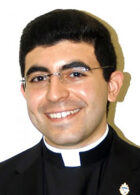This year 2021, marks the 500th anniversary of Christianity in the Philippine islands. The historical background of the celebration is the arrival of the fleet headed by Ferdinand Magellan. His principal mission was to find a westward route to the Moluccas Islands, where spices were thought to be found. Magellan, as we know, was a Portuguese explorer in the service of the Spanish crown.



